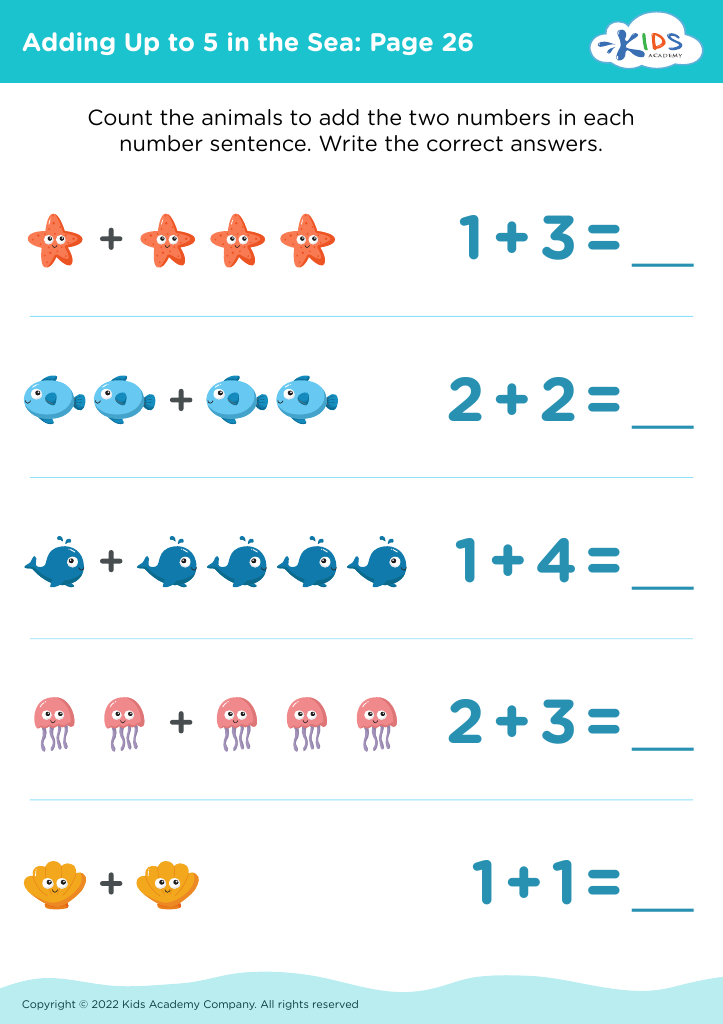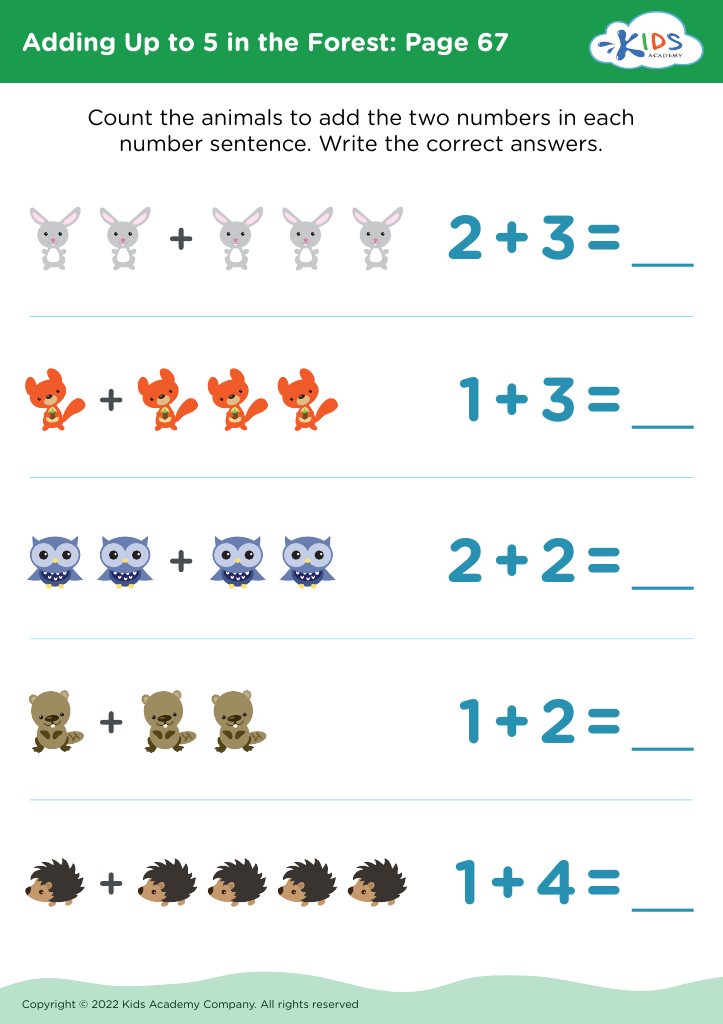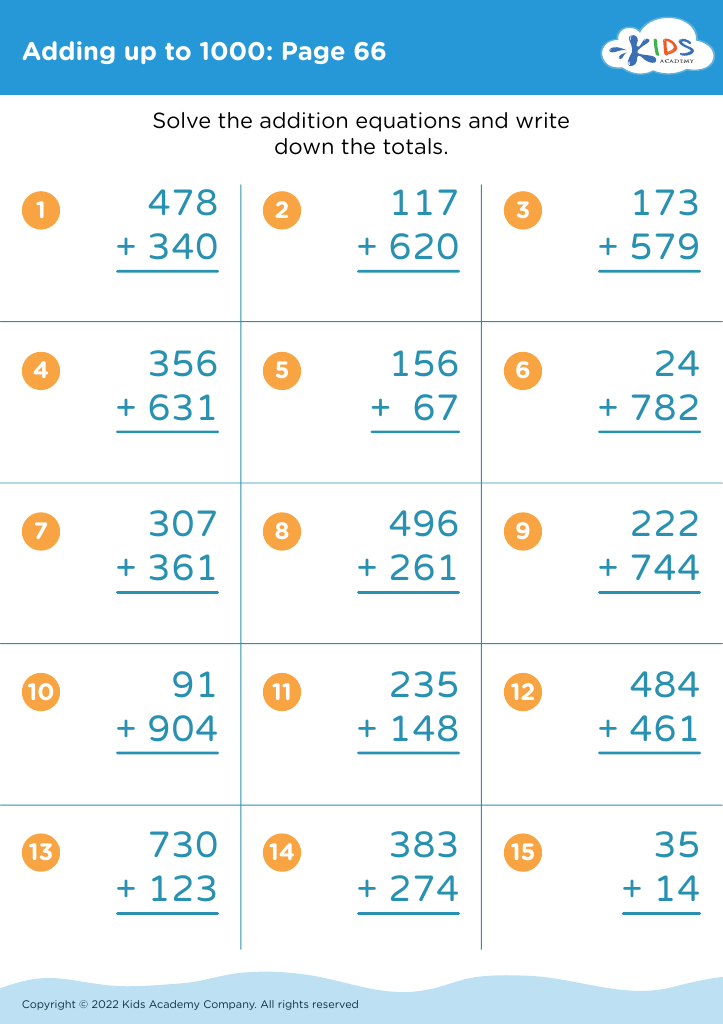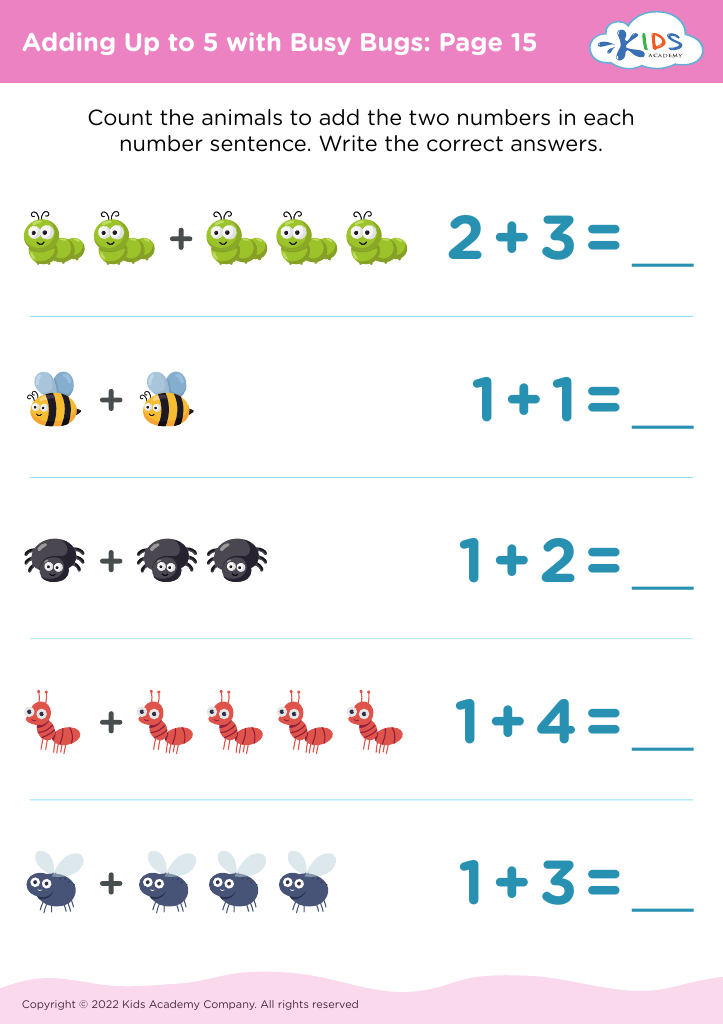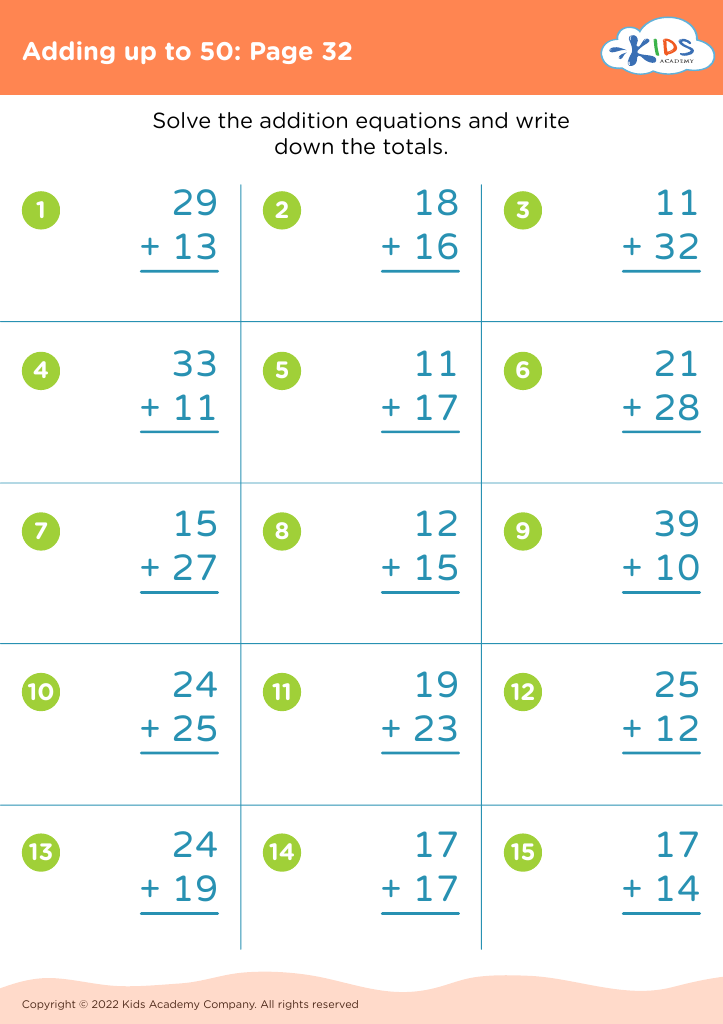Addition Practice Math Worksheets - Page 8
182 filtered results
-
From - To
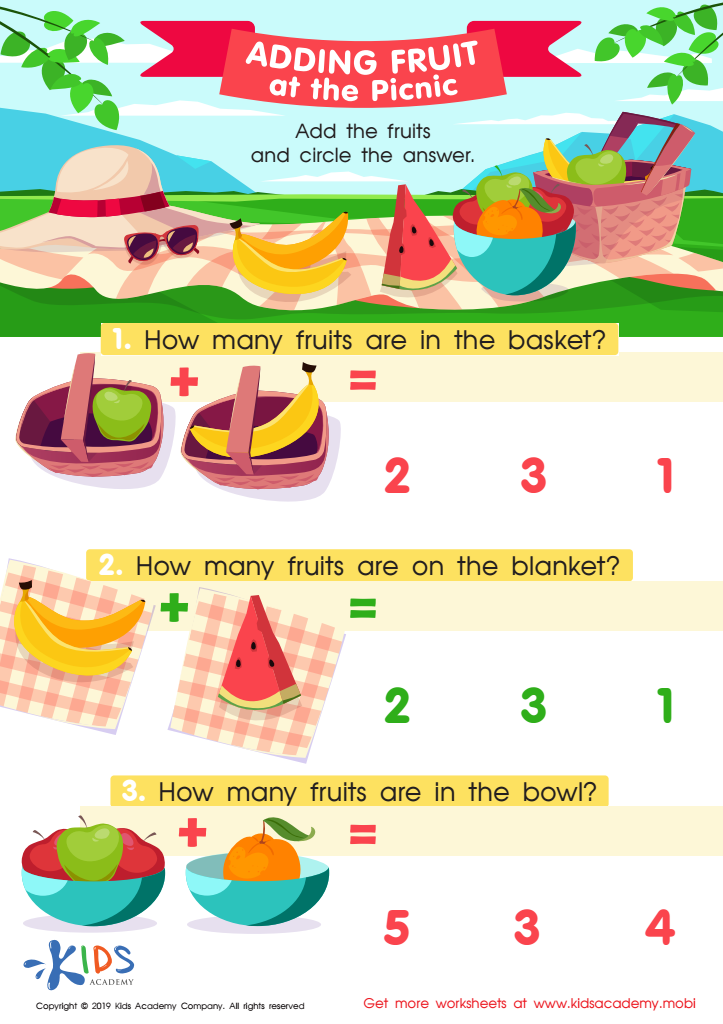

Adding Fruit at the Picnic Worksheet
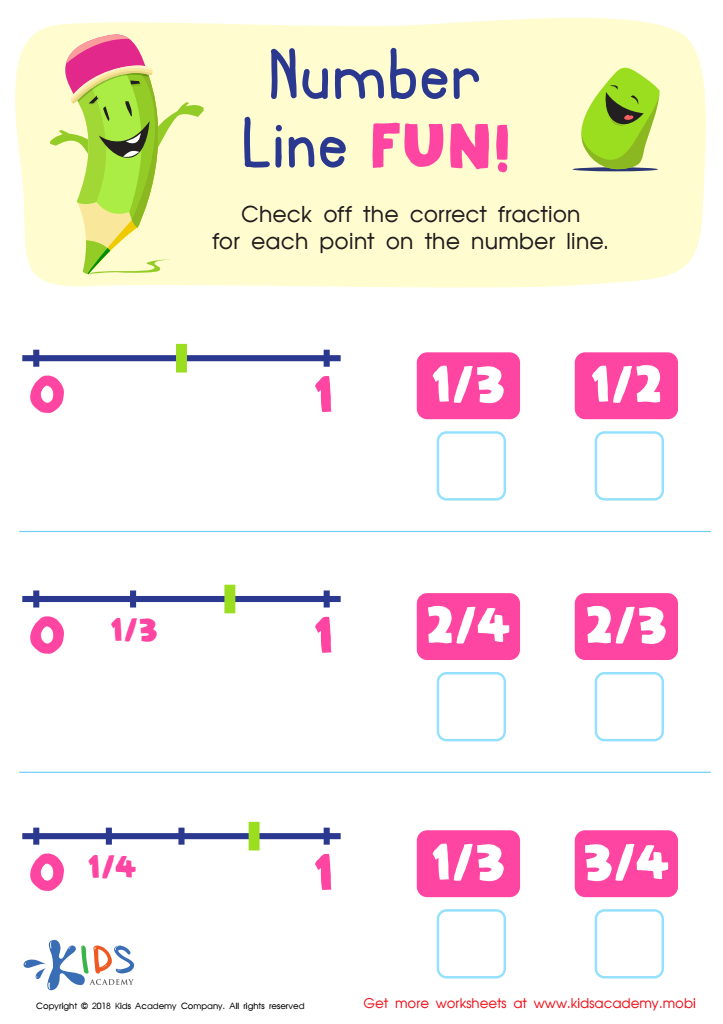

Number Line Fun Worksheet
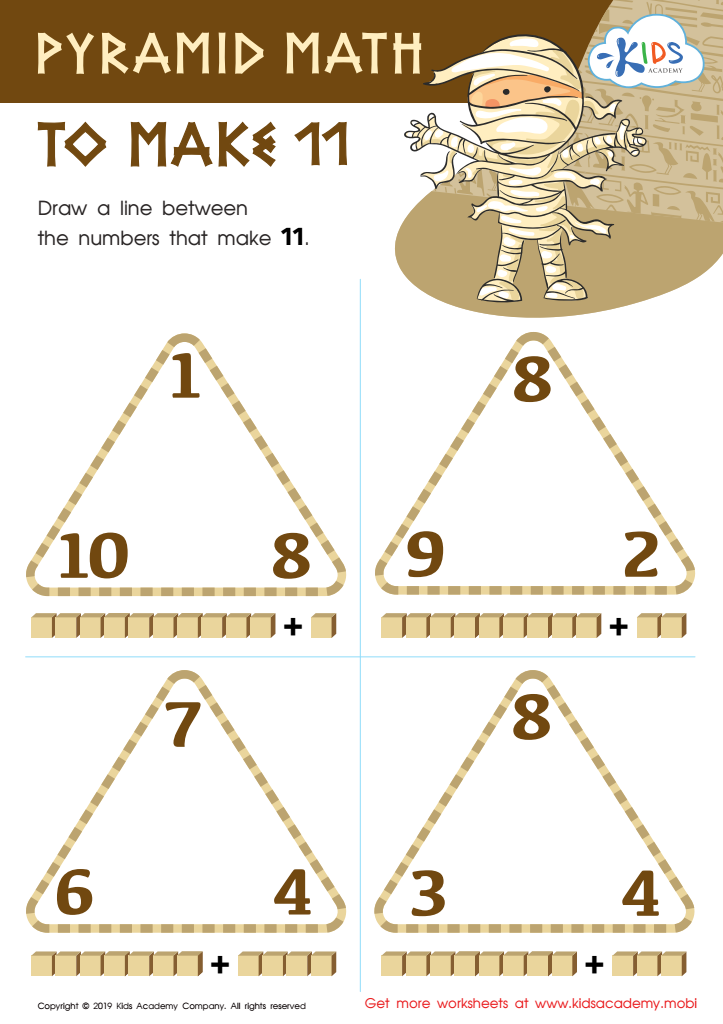

Pyramid Math to Make 11 Worksheet
Addition practice in early education is crucial for several reasons. First, mastering basic addition lays the foundation for more advanced mathematical concepts. When children have a solid grasp of addition, they gain confidence in their ability to tackle complex problems in the future, which supports their overall academic journey.
Moreover, regular addition practice enhances cognitive skills, such as problem-solving and critical thinking. It encourages kids to recognize patterns and make connections, skills that are valuable not only in math but across all subjects. Engaging with numbers through addition sets the stage for a strong mathematical mindset, fostering curiosity and a love for learning.
For parents and teachers, ensuring consistent practice in addition creates a supportive learning environment. It allows for deeper interactions between adults and children—be it through games, homework, or daily activities—making learning more enjoyable. Partnering in this process also helps adults identify areas where children may need extra support, enabling targeted intervention.
Ultimately, addition practice is more than just drills; it's an essential part of a child’s cognitive development, home and school relationships, and future academic success. By prioritizing addition, parents and teachers empower children with essential life skills, promoting a holistic education.
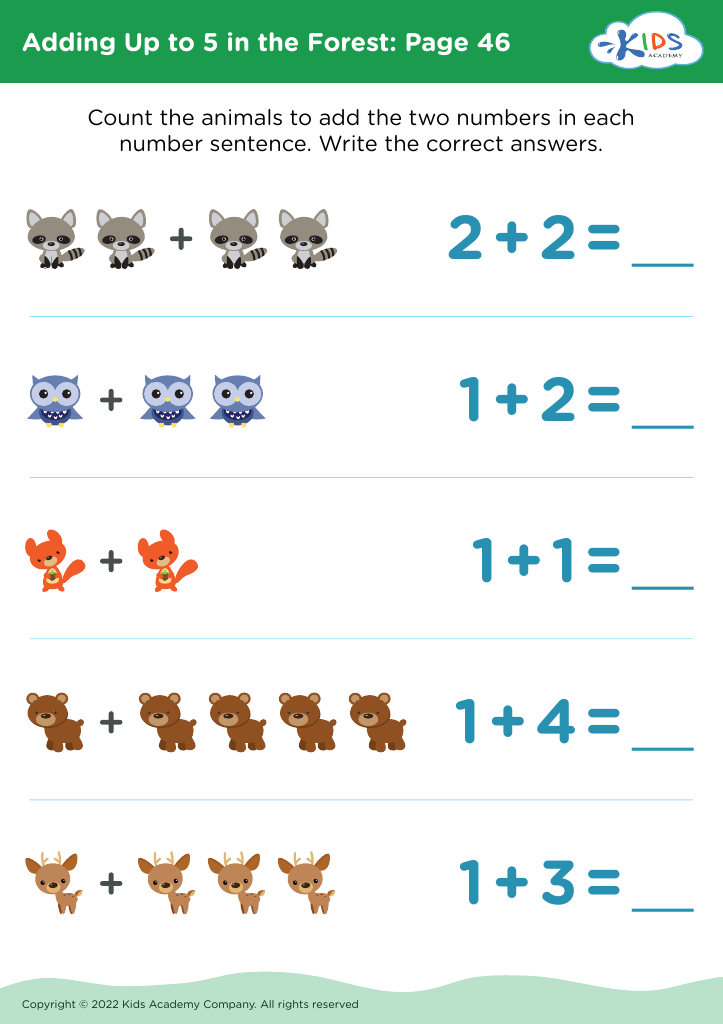

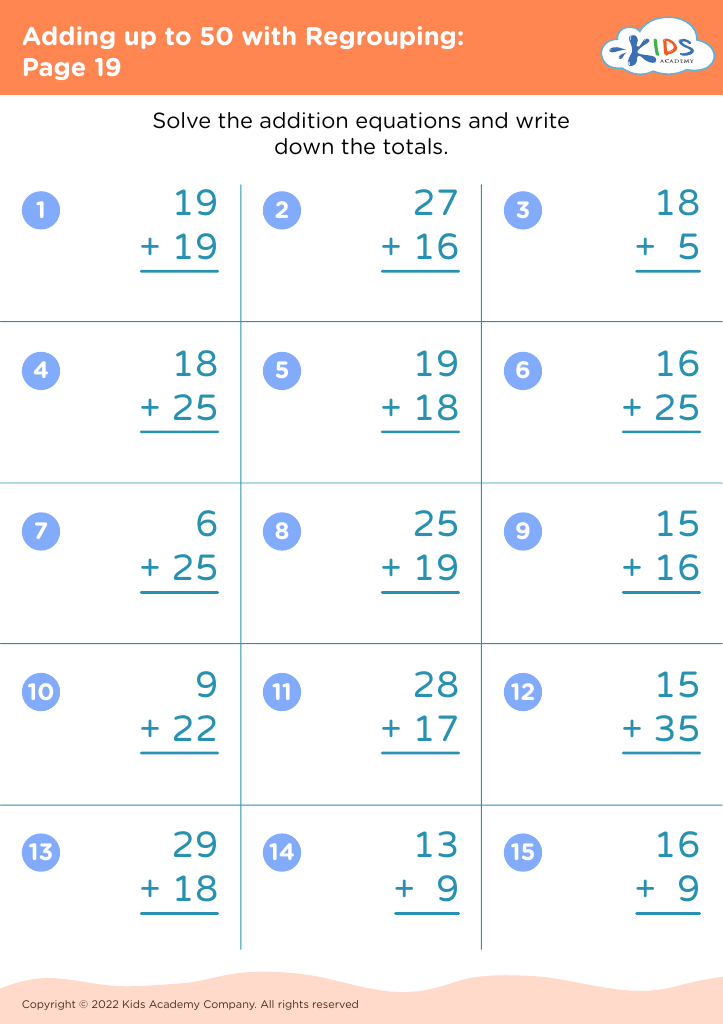

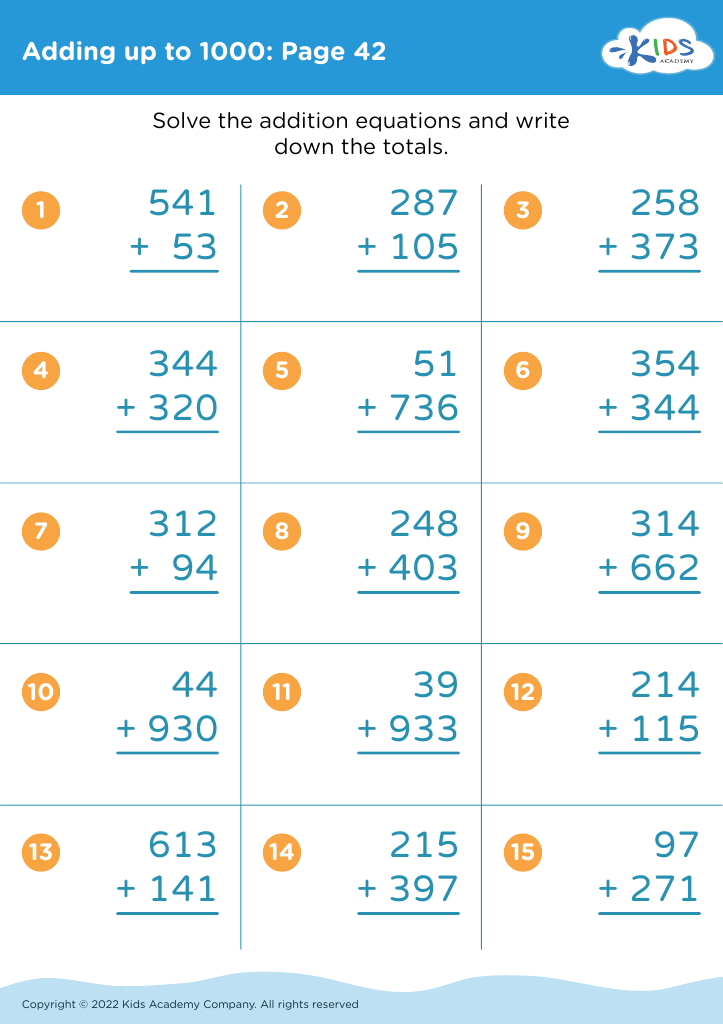
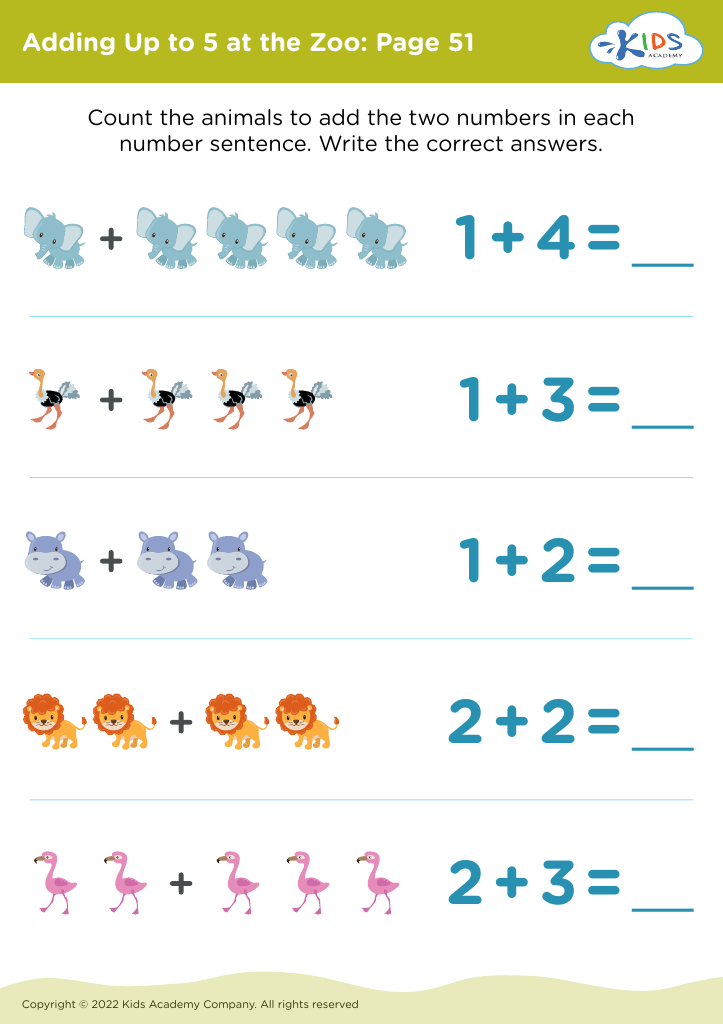

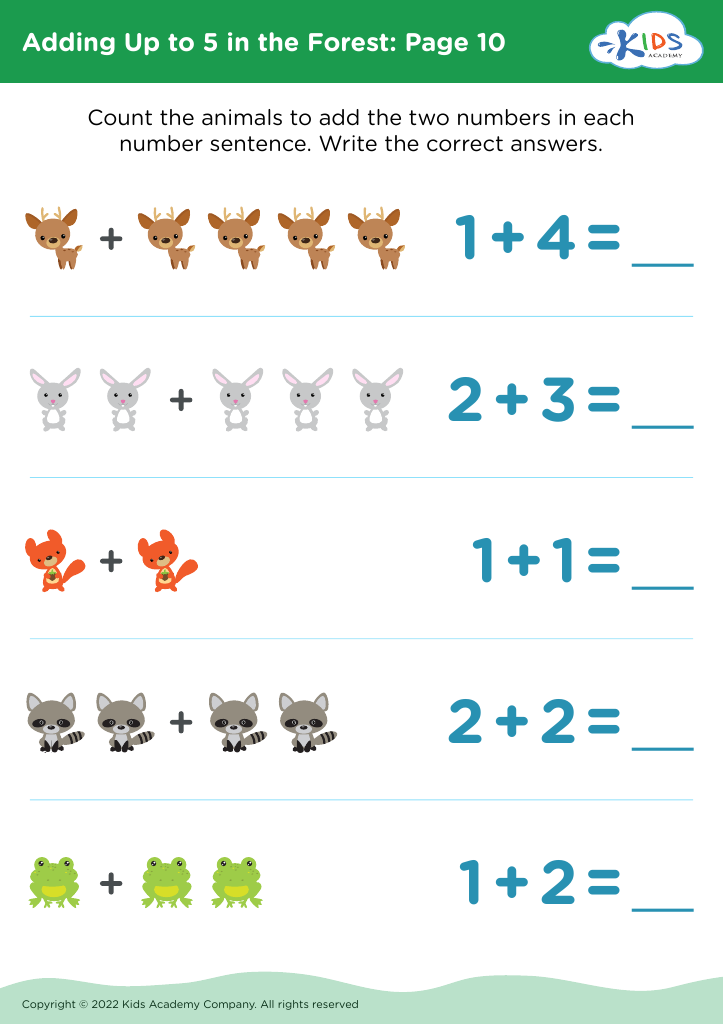
 Assign to My Students
Assign to My Students
